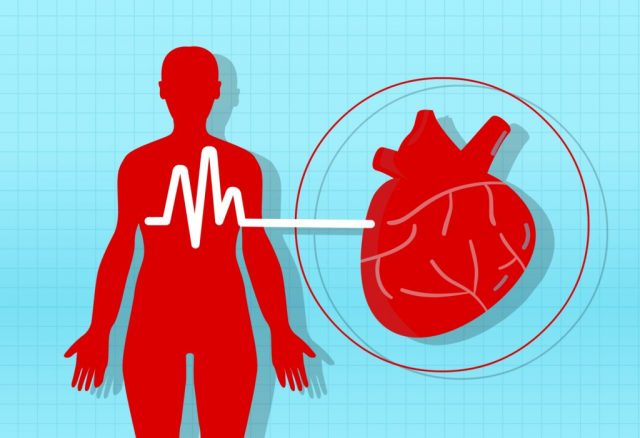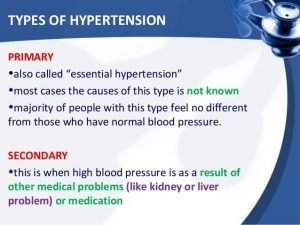What is hypertension?
In my last post, I tried to impress upon you why uncontrolled hypertension is important from the complication point of view. Today we will find out what exactly B.P. is and how it becomes hypertension.
All the major organs in our body like the brain, heart, lungs, kidney etc never take rest even when we are sleeping.
Heart is the one machine in our body that pumps blood to different parts of our body through blood vessels called arteries.
In simple words, the pressure by which heart pumps blood through the arteries is called blood pressure.
When the arteries get narrowed and/hardened due to deposition of cholesterol or due to aging, heart has to pump harder to supply blood to the different organs like eyes, brain, liver, kidney etc. This is called Hypertension.

Causes of Hypertension
The causes for hypertension can be any one of these or a combination of two or more conditions: –
We will now discuss how all these factors that cause a rise in blood pressure in the paragraphs below.
What are the various factors that cause hypertension and how do they do it?
Obesity:
Obesity causes hypertension by increasing blood volume and cardiac output, leading to higher blood pressure levels.
Additionally, excess body fat can disrupt the normal functioning of blood vessels and impair the production and signaling of certain hormones involved in blood pressure regulation.
High salt intake
High salt intake can lead to an increase in blood pressure.
High salt intake causes hypertension by increasing the amount of sodium in the body, which leads to fluid retention.
This results in an increase in blood volume and puts additional strain on the blood vessels, leading to elevated blood pressure levels.
Excessive alcohol consumption
Excessive alcohol consumption can cause an increase in blood pressure. This is because alcohol affects the nervous system and hormonal regulation of blood pressure, leading to higher levels.
Additionally, alcohol can constrict blood vessels and increase heart rate, putting additional strain on the cardiovascular system. These effects can contribute to hypertension and its associated health risks.
Smoking
Smoking causes hypertension by constricting blood vessels and increasing heart rate, leading to elevated blood pressure levels.
Additionally, the chemicals in tobacco smoke damage the lining of blood vessels, making them more susceptible to plaque buildup, further narrowing the arteries and increasing blood pressure.
Chemicals in tobacco smoke, such as nicotine and carbon monoxide, damage the linings of blood vessels, leading to an increase in blood pressure.
Quitting smoking is crucial in managing and preventing hypertension.
Genetic factors
Genetic factors contribute to hypertension, also known as high blood pressure. These factors influence the regulation of blood pressure through various mechanisms, such as alterations in kidney function, hormone levels, and blood vessel structure.
The specific genes involved in hypertension can vary among individuals, but they can impact processes related to sodium reabsorption, blood vessel constriction, and fluid balance.
However, it’s important to note that genetics alone do not solely determine hypertension, as lifestyle factors also play a significant role.
Stress
Stress activates the body’s fight-or-flight response, leading to the release of stress hormones like adrenaline and cortisol.
These hormones increase heart rate and constrict blood vessels, which can result in elevated blood pressure.
To tackle stress-induced high blood pressure, it is recommended to engage in stress-reducing activities such as regular exercise, deep breathing exercises, meditation, getting adequate sleep, and seeking support from loved ones or professionals.
It is also important to maintain a healthy lifestyle and manage stress through effective time management and relaxation techniques.
Lack of physical activity
Lack of physical activity increases the risk of hypertension. To prevent hypertension in such a situation, it is recommended to engage in regular aerobic exercise for at least 150 minutes per week.
Additionally, incorporating strength training exercises and maintaining a healthy weight can help prevent hypertension.
Certain underlying medical conditions
Certain such as kidney disease, sleep apnea can also cause hypertension.
Kidney disease
Kidney disease can cause a rise in blood pressure due to impaired kidney function and the retention of sodium and water in the body. To overcome this, managing blood pressure is crucial.
This can be done through lifestyle modifications such as a healthy diet low in sodium, regular exercise, limiting alcohol consumption, and quitting smoking. Medications prescribed by a healthcare professional, like ACE inhibitors or angiotensin receptor blockers (ARBs), may also be used to help control blood pressure. Your doctor is the best person to advise you about these medications.
Sleep Apnea
Sleep apnea is a sleep disorder that causes pauses in breathing during sleep. It can raise blood pressure due to the intermittent oxygen deprivation.
A common solution to overcome sleep apnea is continuous positive airway pressure (CPAP) therapy, which involves using a machine to deliver a steady stream of air to keep the airways open during sleep.
Classification of hypertension
There are two components of B.P. measurement —one when the heart is contracting, is called Systolic B.P. and the other when the heart is relaxing, is called the Diastolic B.P.
Depending on these two parameters, hypertension is broadly classified into two categories, as shown in the image below-
However, it is also classified according to 3 stages as follows:
Classification of Hypertension:
Stage 1: Systolic blood pressure (SBP) between 130-139 mmHg or diastolic blood pressure (DBP) between 80-89 mmHg.
Stage 2: SBP of 140 mmHg or higher or DBP of 90 mmHg or higher.
Stage 3: SBP of 180 mmHg or higher and/or DBP of 120 mmHg or higher.
Recommended line of treatment:
Here is a stage-wise recommendation for treatment of high BP-
Stage 1:
- Lifestyle modifications: such as
- healthy diet,
- regular exercise,
- weight loss,
- reduced sodium intake,
- limited alcohol consumption, and
- stress management.
- If blood pressure remains uncontrolled, medication may be prescribed.
Stage 2:
- Lifestyle modifications: same as stage 1.
- Medication: Usually, two antihypertensive drugs from different classes are recommended.
- Your doctor will assess your risk after going through your blood reports like
Stage 3:
- Urgent medical attention required.
- Your doctor will assess the medications that were prescribed earlier and may add a drug or two to help reduce BP.
- Sometimes, hospitalization in a intensive care unit [ICU] may be necessary for immediate blood pressure reduction.
- The attending physician may give you antihypertensive medications through intravenous [IV] route.
- Medication: Multiple antihypertensive drugs are usually prescribed.
Note: It is important to consult a healthcare professional for personalized advice and treatment options.
**You can watch this video from American College of Cardiology for more information on classification and management guidelines of high BP-
Suggested reading:
Conclusion
I conclude this article here. Hope you have understood all about hypertension. If yes, please promote my blog by sharing this article with your friends and family using the social media icons at the bottom of this article. You can also click to tweet here-
HYPERTENSION PART 2-Causes, Stages and Treatment Share on XIn my next blog I will discuss how to measure B.P., the different instruments available and methods to maintain normal B.P.
Adios.



